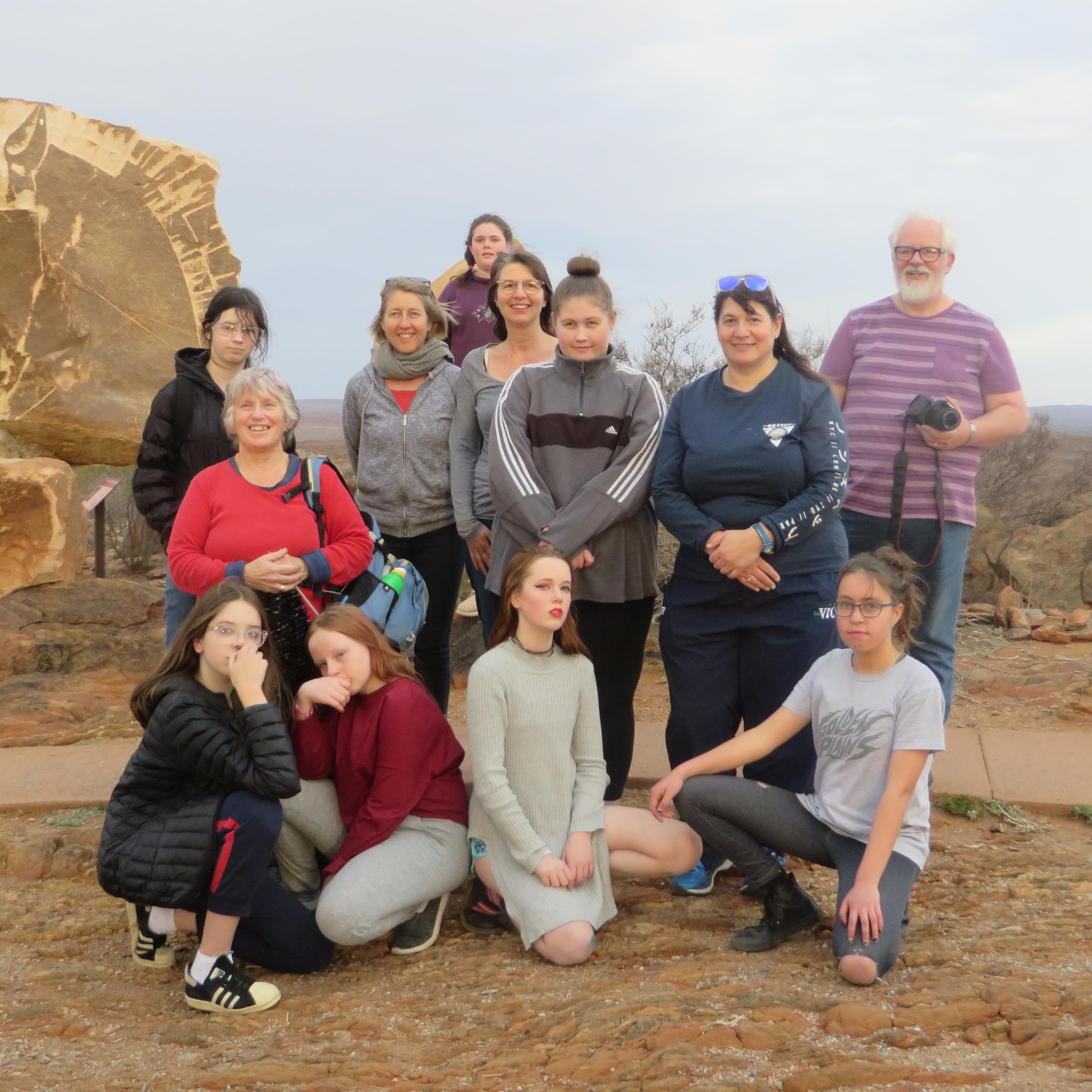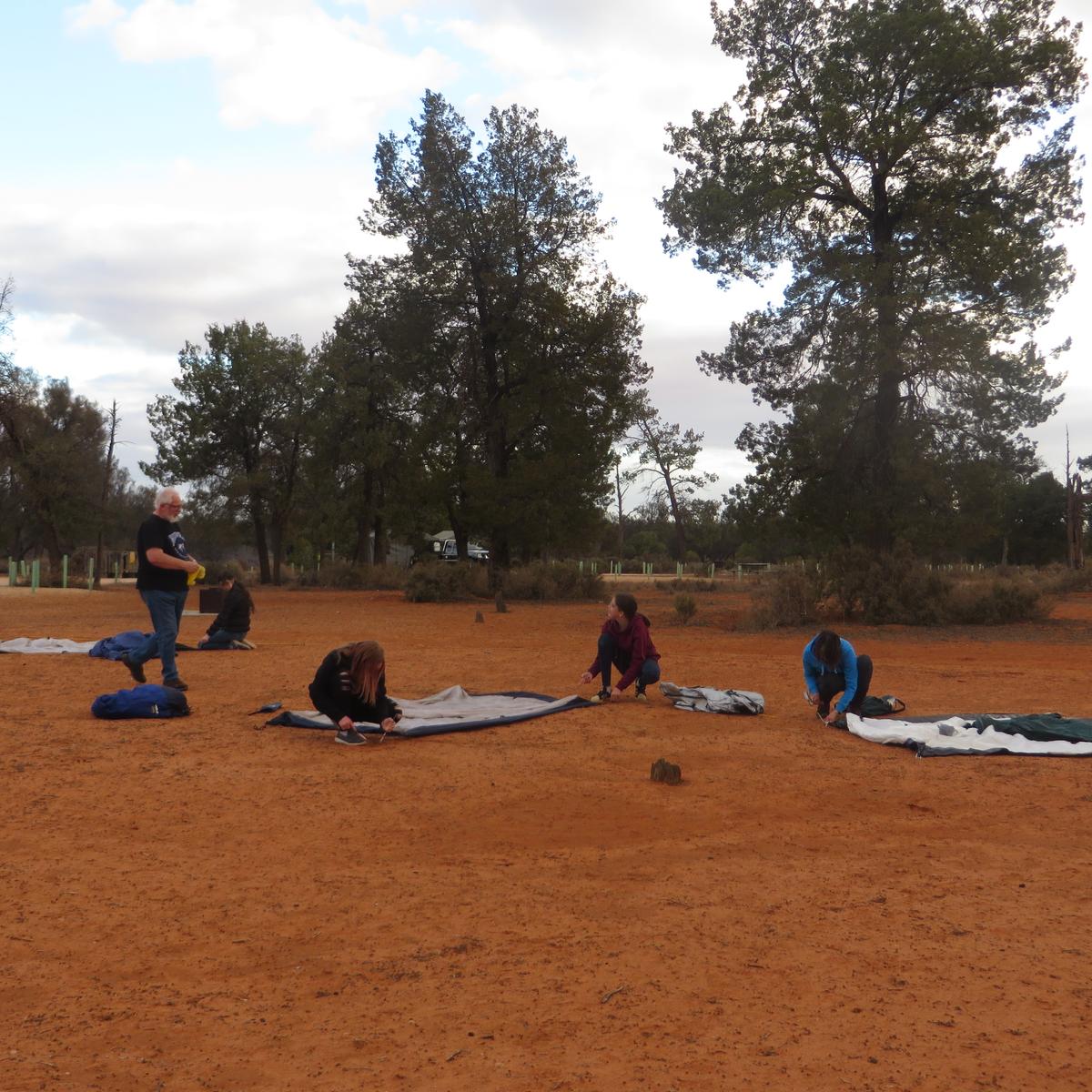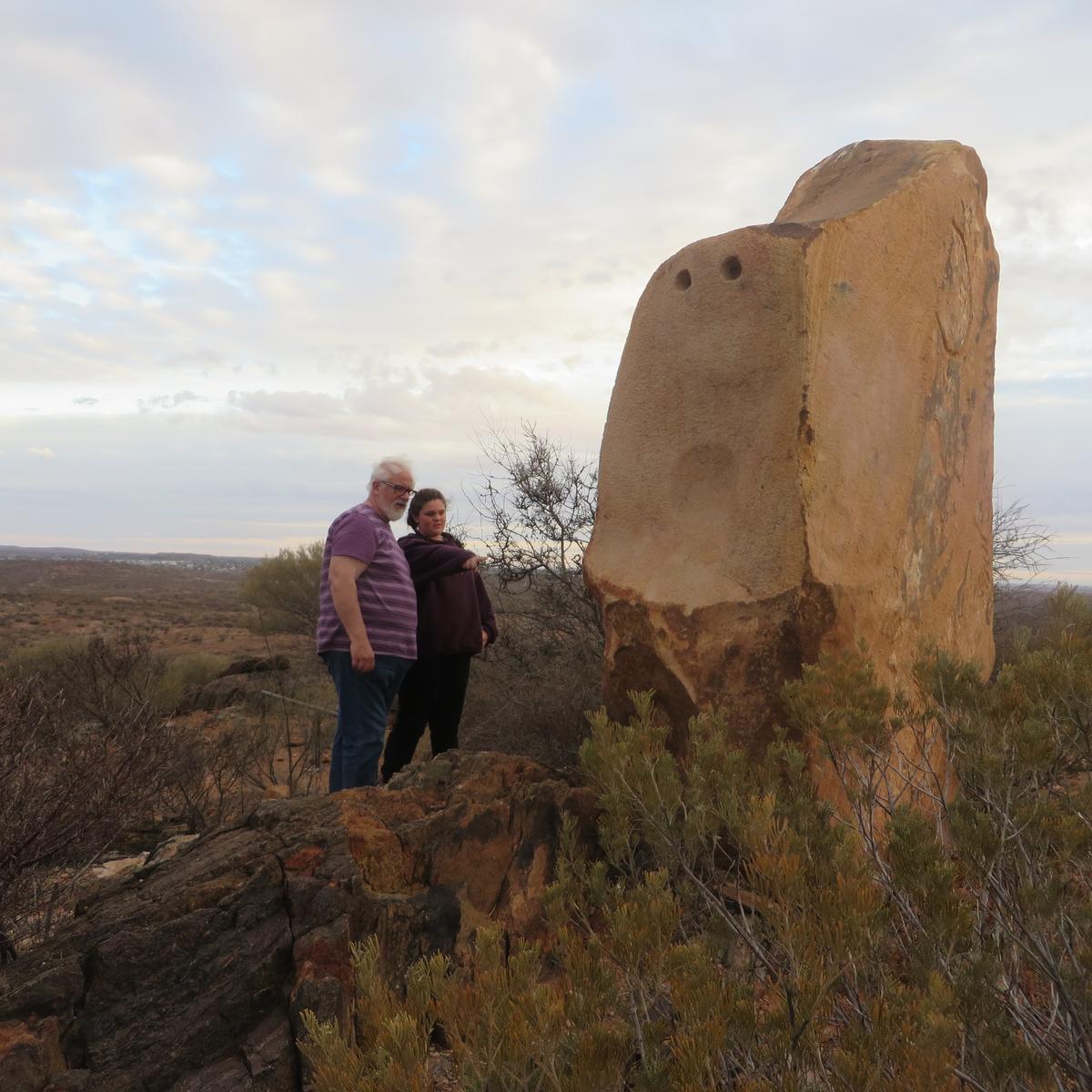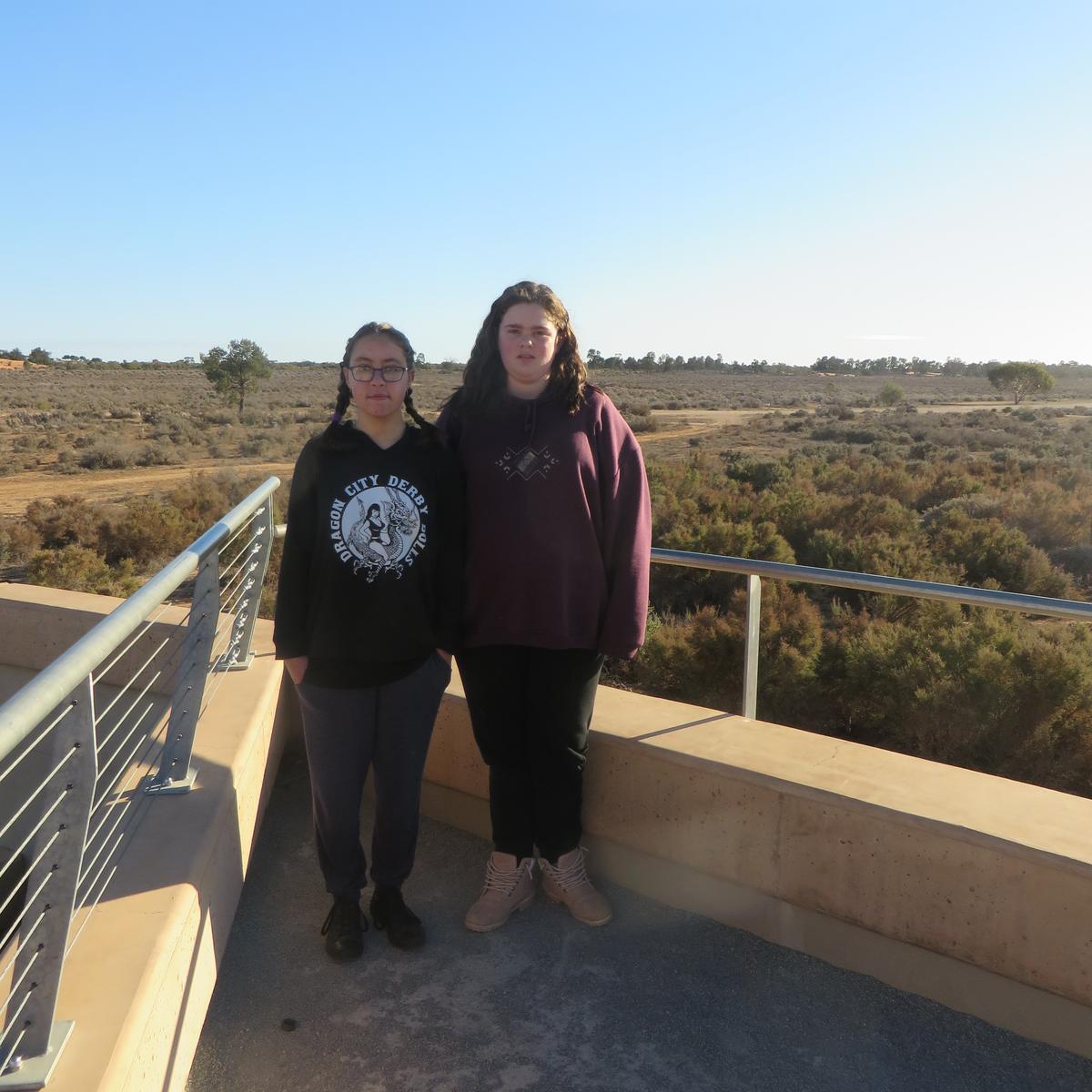Camps and incursions

Soar Adventures in Broken Hill
On the 13th to the 17th August, seven year 8 girls, Shiralee Bothe, David Tolputt and three support team members involved in the SOAR Program, went on an Outback camp to Broken Hill and Mungo National Park.
Broken Hill is known as a mining city lead, silver and zinc and Australia’s First National listed heritage city. Key highlights for the students included visits to the Royal Flying Doctors [RFDS] Bruce Lanford Visitor Centre . The RFDS has a role of providing cutting edge health care since 1936.
The trip included a visit to the Pro Hart Gallery then an afternoon at the town of Silverton. It is known as a former mining town, and famous for Australian movies filmed there such as Mad Max and Razor Back.
Education, personal development and resilience were key outcomes as a part of the SOAR Adventures program and the Camp. This involved community work in partnership with the local Salvation Army gardening, painting and assisting with general organisation, cleaning and organisation of their facilities and resources.
The girls and their support team witnessed the effects of the drought especially the impact to farmers, communities, organisations and even the local wildlife. Emus were prevalent throughout Broken Hill parks and residential areas.
The last leg of the trip involved one night at Mungo National Park a world heritage listed area. It has the world’s largest collection of ice age human footprints and the oldest of human remains second to Africa. This was a great cultural educational experience especially in terms of the local Aboriginal culture and heritage.
The year 8 students have thoroughly enjoyed the benefits of the SOAR program and grateful for the opportunity of their Outback Trip.
Shiralee Bothe
Brainstorm Production presented ‘Cyberia’
Brainstorm Production presented ‘Cyberia’
Brainstorm Productions recently returned to Castlemaine Secondary College to deliver Cyberia- An entertaining investigation into the pitfalls of technology, including cyber bullying at school, stress, lack of privacy and de-sensitisation. The production was not only very entertaining, but thought provoking, reminding us that technology and social media is all around us and although can be used to great effect can easily turn, and we can’t always press “undo”.
In consultation with IT, education and mental health experts, the creative Brainstorm team have woven together true stories of Gen Y/Z's internet experiences. Cyberia posed questions about how the digital age is affecting our brains, our humanity and our future.
In Cyberia, Ruby, who loses her moral compass on blogs, Facebook, Instagram, Snapchat and MSN
banished to "Cyberia". Whereas, Tim was in self-imposed exile playing online games.
When Ruby & Tim indulge in cyber bullying and anti-social behaviour, they discover that it creates havoc in the real world. They suddenly realise they cannot just press the "undo" button to retrieve their relationships, reputation, dignity and most of all their privacy.
The Cyberia Cyber Safety Program covers:
- Cyber Bullying
- Exclusion
- Internet Addiction
- Digital Citizenship
- Alienation
- Impulse Control
- Cyber Safety
- Internet Security
- Social Websites
- Isolation
- Online Reputation
- Responsible Use of Technology
Our Year 9 students, in addition to receiving the Brainstorm drama production, met with our local Youth Resource Officer, Senior Constable Kim Garsed, the following day.
Kim presented a very interesting and factual presentation that not only embed the issues explored the previous day, but encouraged the students to take a deeper look into keeping safe online. This information was infiltrated with the laws that are in place around cyber safety.
Important points to remember:
- Passwords: Have a strong password is one of the easiest ways to protect your information.
“New research shows that the strongest passwords are made up of a random collection of four or more words. These words should be unrelated and be made up of at least 12 characters. For example ‘instapastasmellyshoe'. Make it meaningful to you so it is easy to remember”
- Sharing information:
“When you share information online, think about if you are comfortable having everyone seeing it.”
- Cyberbullying:
“Don’t join in—don’t share or comment on nasty posts, images or videos.
Leave groups and conversations that are negative.
You may not always be aware that your actions are a form of cyberbullying and can be harmful.
It is a good idea to read your messages out loud before you send them to make sure they cannot be misinterpreted by others.
Cyberbullying is never okay – even if it is a joke or the person was mean first.”
- Sexting:
“Relationships can break down over time, so while you might be happy for someone to have your personal image or video today, tomorrow might be a different story.”
The involvement of the Year 9 students is part of a bigger project in which the school is linked with the Mount Alexander Shire. The objective of the MASC Youth Wellbeing Project is for Young People to gain skills and capacity to design and implement projects that increase resilience and mental Wellbeing.
The second part of this project is happening Wednesday the 5th, in which the year 9 students will be encouraged to pull out key issues and messages that they have learnt from the training and also hear from local IT consultants on how the key messages can be presented as a form of peer education, in an exciting, eye-catching, engaging way.
So watch this space on how this wonderful opportunity evolves!



